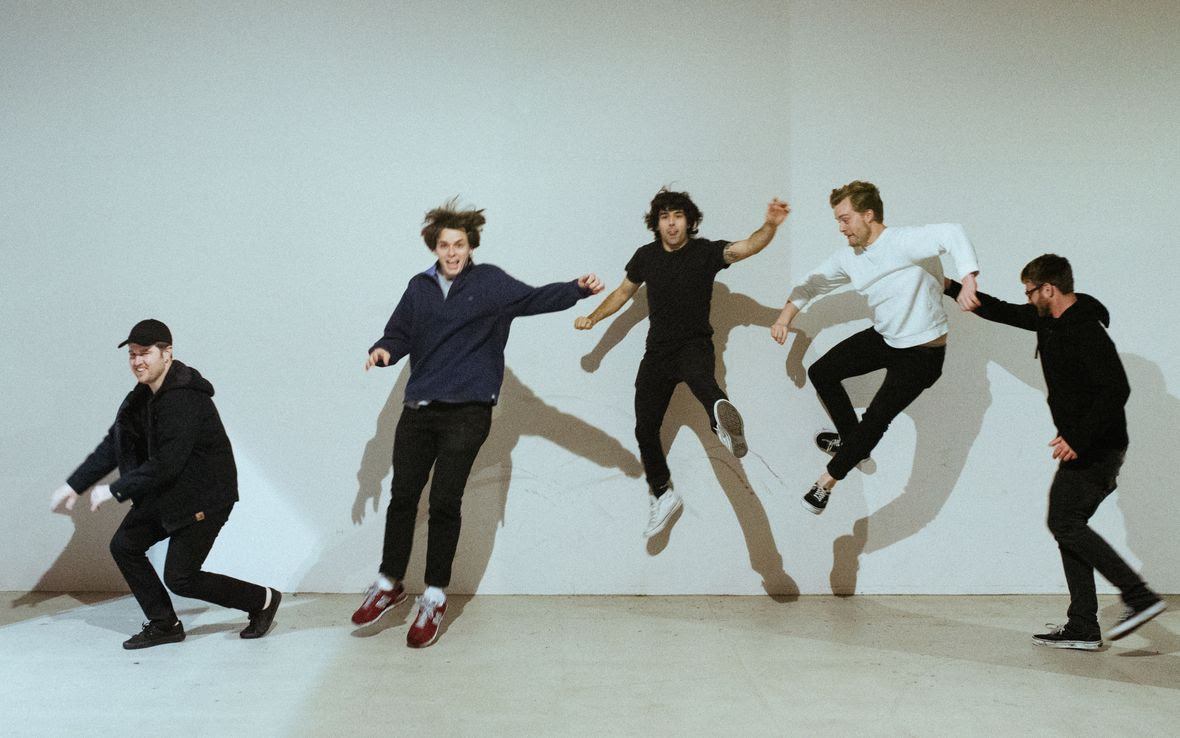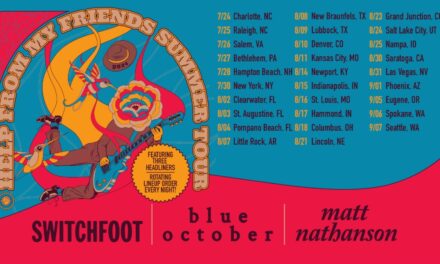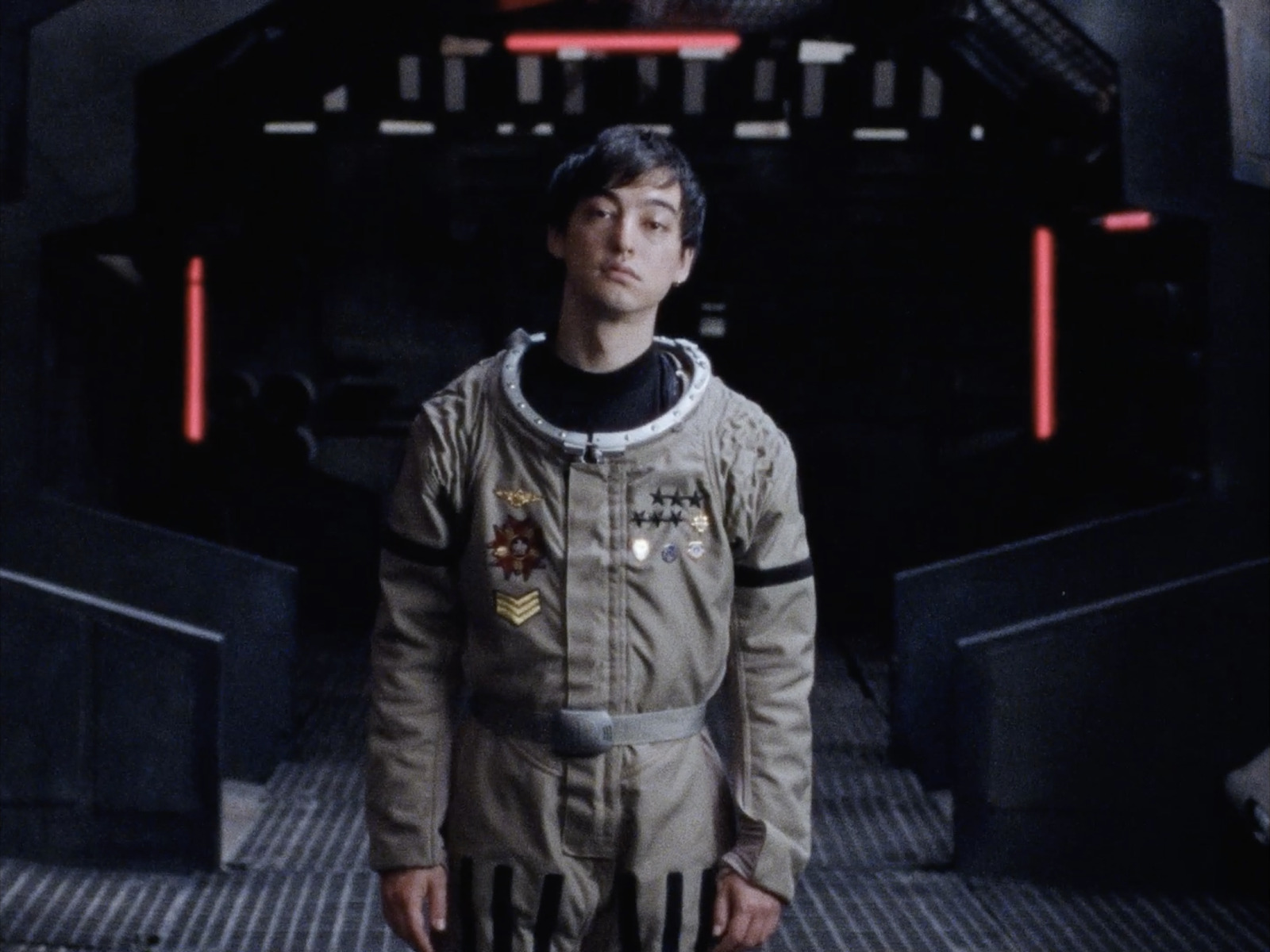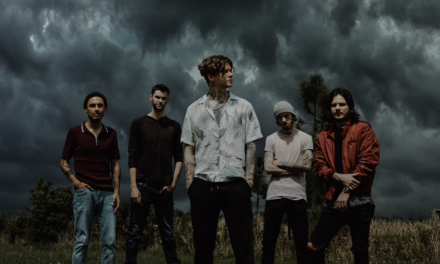Have you ever felt so drawn to something, it was like a gravitational force sucking you in? For some of us, a life path sticks out from a young age, and we know, deep in our hearts, that this is it. This is what we’re meant to be doing, and nothing can stop us.
But then… life happens. College, work, and personal relationships take your money, time, and energy, and sometimes, you take a step back from the thing that’s long felt like your purpose as you figure out how to be a human being.
Stickup Kid formed in 2009, when guitarists Bo McDowell and Curtis Wallace, vocalist Tony Geravesh, and bassist Jonathan McMaster had recently graduated from high school (drummer Cameron MacBain was 14). After signing to Billie Joe Armstrong’s Adeline Records in 2012, they released the EP Nothing About Me, followed by Future Fire in 2013. Stickup Kid has toured extensively around the US as well as Japan, and they’ve supported the likes of Green Day, Modern Baseball, The Story So Far, and Real Friends.
While there was never an official “hiatus” or breakup, for a few years, things slowed down for Stickup Kid. The members pursued relationships and jobs; Geravesh graduated from college in 2017. They released a three-song EP in 2016, Debris, followed by two singles in 2018 (“You Were All Mine” and “Draining”), though for six years, there was no talk of an album.
In April, Stickup Kid announced that they’d be releasing Soul Drive, their first LP since Future Fire, on May 3rd. There was no record label involved this time (Adeline Records shut down in 2017), and their team – including manager Steve Marley and booking agent Joey Lanzillotto – are “people that want to work for Stickup Kid”: people who care just as much about the band as they do. There’s no room for giving up, or for not being the best that they can be.
Below, McDowell and Geravesh discuss Soul Drive, where Stickup Kid is at right now, and how they’ve all grown.
This interview has been edited for length.
SUBSTREAM: Stickup Kid is releasing an album, Soul Drive, on May 3rd. It’s been a while since you put out an album. You had the EP Debris back in 2016, but at what point did this album come into the picture?
Tony Geravesh: We have sung so many songs, and those songs would’ve been a couple years old, and then we’d record them, so we’re always a little bit ahead of ourselves in terms of writing songs. We write songs, and then we record them later instead of doing it right away. We sit on songs and pick from the past, and we record and we have some new ideas infused.
Bo McDowell: Around whatever time we decide to go into the studio, we take whatever ideas we’re working on and then be like, “Okay, we have five really cool ideas that we like – let’s start workshopping those and then let’s get new ideas implemented.”… Some songs are crafted in the studio; some are done by the time we go in.
TG: Yeah, and those ideas can be up to two, sometimes even three, years old that we’ll be like, “this idea, I totally finished this song.”
BM: Some of the songs we recorded for Future Fire ended up on the release after. Some songs aren’t ready to be on albums. You kind of know when it’s like, “oh, we prematurely recorded this” and there’s a thing that no one’s feeling yet; it needs a little time to sit and chill and see what we need to do arrangement-wise and then usually it comes back, second-time around, when it feels better – we can all kinda be like, “okay, this sits a lot nicer on our platter here.”
SUBSTREAM: So it wasn’t so much as, “oh hey, let’s do an album” – it was, “all right, we have things that we’re feeling good about putting together.”
BM: Exactly. Through the last few years, Tony and I have wanted to get a new record out. As we get older, it’s really hard to find the time to be like we were when we were 20. So it was a really long experience, and I think we all personally grew a lot through figuring out how to get through this album cycle and figure out how to even get this album to fruition. It was a really challenging time, and it ultimately tested the durability and longevity of our band. I couldn’t be happier after having that out. I’m really, really stoked. I’m at this point of pure relief and readiness to go play the songs and enjoy my time with the guys.
SUBSTREAM: You’re adults now, and over the past few years you’ve been figuring out how to be real people, whether that’s finishing college, and all those sorts of things; was there ever a point when you thought, “this is done, the band is over”, or has it been more of a matter of, “okay, we’re doing this, we just don’t really know how or in what manner”?
BM: All of us, at one point or another, have cared enough about the band to keep it going. I think at one point or another, someone was like, “Dude, fuck, this is rough – the situation is tough, it’s been this much time, we haven’t done music” – and then there’s someone like, “Nope, that shit ain’t happening. We’re getting this back on.” It would just keep happening. After six years, that’s a lot of time going by with only like, three to five songs put out. So there was a lot of back and forth and figuring out like, “okay, there’s college, there’s school, there’s work, there’s significant others, there’s family” – we’re sitting back from like 18 to 24, touring and figuring out music stuff and it’s like, “dude, what are we as humans? What do we do, what do we like?”
TG: I’ve really grown to hate the spotlight of things. I’ve really grown to hate that people have to have a phone to record everything. I’ve grown to hate that, and I used to want to be at the forefront of it. I used to want to live in the city and have all the attention, and now I want to live in the fucking woods. Peace and quiet, rather than noise, has been what I’ve felt more attracted to.
If you’re not recording music, you’re not really… that was kind of the whole thing with the band: we were a band that wasn’t a band. We hit this really weird middle ground of like, we had done some cool stuff, like opening for Green Day at South By South West, but then that became, like, everybody, the first thing out of their mouth was, “Oh, these guys opened for Green Day at South By South West” – well, so what? Yeah, it’s cool – but so what. I’d rather get, “This band is a good band.” I didn’t want to be defined by those things. We never really put out songs that we don’t think are worth putting out. We don’t really force ourselves to put stuff out; we finished our contract with [Adeline Records]; we’re all good with them, they’re doing their own thing, I don’t really think they’re a label anymore.
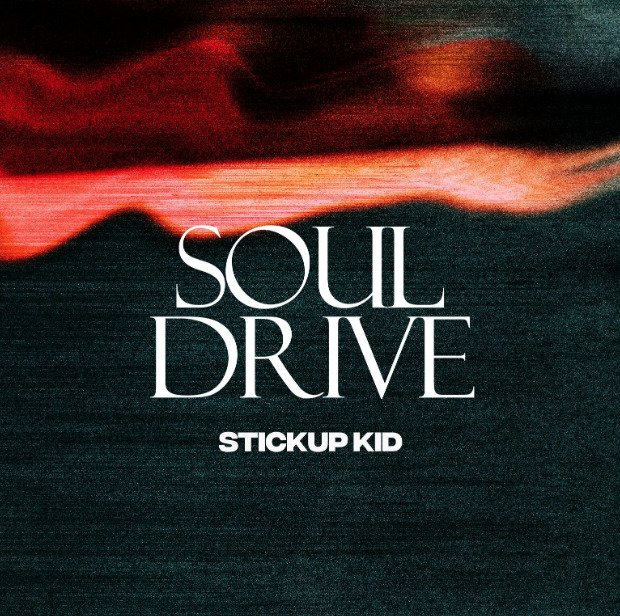
SUBSTREAM: There’s been a lot of growth in who you are as musicians and songwriters, but it seems – and it’s only natural – that there’s been growth in who you are as individuals. What are the biggest things that you’ve learned either about yourselves as people, or about your bandmates and how you guys click and work together?
TG: No bullshit. Just, no bullshit – there’s no time for bullshit. We have no time – time slips away like sand through your fingers, the older you get. You have to be organized, you have to plan things, you have to stay on top of every single thing that you’re gonna do, and it all has to be with a purpose.
You have to value yourself; you have to value yourself as a musician, you have to value yourself as the fact that you’re in a business, as well as in a band. You have to value and put a lot of different things in to consideration and realize that if you’re in a band with four other people, those four people are depending on you for their personal goals as well as the band goals, and you’re depending on those other four people, and you gotta get that straight.
BM: There’s a lot of faith in each other, a lot of making sure everyone’s accountable. It’s not one of those times where it’s like, “Oh, yeah – we got months at a time to chill and do our thing.” It’s one of those things where it’s like, “yeah, I’m fucking working right now, and I’ll be off at this time, and then I’ll be at practice, or I’ll be over to the show.” It’s a double-duty until we can drop out that first commitment of work and then get right to the band. This is that transformation time of getting that in to fruition.
I think through this break that we subconsciously ended up taking, we all found that there is something more that we have in each other and in ourselves that ultimately gives back to Stickup Kid with positivity. It lets us live our lives and then we come back even stronger and ready to go, revamped – we’ve lived life outside of this. We’ve found new inspiration, and it truly has been such a cool time to get back into things and the last few days, just seeing people so stoked that we’re putting a new record out and shit – we’re fucking loving it, dude; it’s awesome.
SUBSTREAM: Sometimes you need that time away or at least very slowed down to realize exactly why you love something and why something is so important to you.
The album is called Soul Drive, and that’s one of the songs on the album; that phrase, “let your soul drive,” repeats a bit throughout the album – what does that phrase mean, what does that originate from?
TG: I found myself trying to move or make decisions in my life that were based not on logistics or on what I thought or knew was correct. I have a degree in Business and Decision Sciences which is marketing and researching and being able to provide empirical data to create a solution to a problem or to be able to make a decision between multiple things. I can sit there and tell you twenty or thirty which ways in which my actions were not logical or how that would lead to the worst place, but my heart was telling me something different. It was like… choosing to ignore all your logic and just go for what you’re feeling.
I don’t regret the things that I did because it gave me a lot of time to think and listen to good music. When you’re in a band and it starts turning in to a business, but you started as five friends, all of a sudden, you’re just in this business. All of a sudden, I get up, and I’m on a plane, and I’m in Japan or on tour in the middle of Wyoming, and it’s hard to live like that. It’s hard to keep friendships. It’s super hard to live like that consistently.
SUBSTREAM: One of my favorite songs on the album is “Real Time” – can you talk about where that track comes from or what the story is there?
TG: The working title for that was always “Spanish” because we thought it had a Spanish rhythm guitar part.
BM: I used to play classical back in the day when I first started playing guitar – so I naturally like playing stuff that’s got just a little extra spice to it. Cam’s a really adaptive drummer, so anything I play, he picks up on, whether it’s a shuffle or whatever, he knows how to adapt to what I’m playing, and vice versa.
TG: I remember driving down the highway, and I was looking at this sunset, the sunset was just… so phenomenal, and I had this earth-shattering moment [where] I took off my work clothes, and they smelled like my work. I hadn’t seen daylight in forever. I was like, “I cannot live like this… I can’t do this 9-to-5- what, am I just gonna do this for the rest of life until I’m dead?” And that’s the reason why you put so much effort into trying to remain [a band], because it’s high risk but it really redeems your soul, it makes you feel like your life is meaningful. At the end of the day, I could spend every single hour trying to make money or trying to put my effort into doing something creative and fulfilling, knowing that if I’m doing all those things right, it should lead to all the right paths that I want to go down. That’s why you keep trying, that’s why you always keep putting out albums – it’s important to not get caught up in the fact that life is crazy and unpredictable, so I’m really excited that we got to come reel ourselves in as a band and as people and be able to put out this album.
SUBSTREAM: Yeah, I think that song and what you were saying there, sums up where you guys are at.
BM: That line, “We had the light like a farmer’s devotion” – in my eyes, my interpretation of the track, [is] not forgetting about now. Don’t forget what you have – you’re right here, right now; dedication; those kinds of things come to mind when I hear that song. I was part of this process; Tony wrote the lyrics. I’m truly proud of that song; I love that song. It’s one of my favorite Stickup Kid songs because of the message.
SUBSTREAM: And I think that’s something that will connect with other people. What are you hoping that people get out of this album?
TG: For me, I hope that they see that we’re a band that is not gonna box ourselves in. We started off as a kind of generic pop-punk band, [but] it’s not really what any of us are. John and Cameron listen to, not pop-punk necessarily, but kind of in that genre of rock. Bo and I and Curtis, we really dwell in a lot of other areas. For me, personally, I can say that a hundred percent of the time, I’m listening to some combination of hip-hop and trance and R&B. Miguel has some really cool songs; Sade has some really good songs – because it’s really melody-driven, it’s very vocal driven, like the music supports the vocals and there’s a lot of different effects that are being used.
I like art and music that make me think about all the different effects and different sounds and tones that you can do with a computer nowadays. Our band is always trying to record super true to live, [and] we’re just now starting to be like, “let’s get a little more experiment-y.” -We’re experimenting right now as musicians.
BM: I’m hoping that they’ll find whatever it is that they want to think about, or whatever they’re interested in, [and] that our music makes them think about that thing and go towards it.
SUBSTREAM: If you could both go back to Tony and Bo in 2009, 2010, just as you’re starting the band, getting ready for your first show, if you could give yourselves one piece of advice, what would you say?
TG: It’d probably be a book. I think what I would tell myself is don’t let anybody else or any other outside influence make your decisions. This is just an example, but if somebody doesn’t want to hire you [at a job], then don’t go, “Oh shucks, I can’t work” – you gotta go get up and find another place until you find the right situation. If a person doesn’t want to be your friend or your relationship with a person is toxic, kick that person aside and go find other friends. I would tell myself to always put myself first, and then you can take care of other people because I was always the kind of person trying to take care of everybody, but I failed to take care of myself in a lot of ways.
BM: I remember incredibly vividly starting the group and trying to get a show. I remember we had a Myspace profile and sitting there every single day – within a three-to-four-hour span of our San Jose Bay area, I’m trying to find a show, and I’m getting nothing, getting nothing, getting nothing, getting nothing. I got a show; it gets canceled. Finally, Tony’s old band was supposed to be in this slot, and then they dropped, so I slide in real quick to the promoter, and I’m like, “yo man, can we get on this bill?” – so our first show, it was supposed to be Tony’s old band, which was really funny.
I look back at those days, and I remember how hard I tried to find us a show. I remember the exact moment I opened that on the computer and I just felt this huge sense of relief, and I was like, “I don’t know what this show is gonna do or what this is gonna open up – but this shows that if I stay on shit, we can get a lot done.” From that moment on, it was always that mentality, because if I thought it was that fucking hard to get one show, how hard do I have to work for everything else? So it was a big time for me personally to understand what it took to figure out how to navigate around the scene and figure out how to talk to people, figure out how to get a show, figure out how to get people to know about you. I think that was one of the big things that I’d tell myself – to keep trying, and things will work out.
SUBSTREAM: Did things get easier or do you think you got smarter?
BM: Both. As you do more, more opportunities come along; you learn from mistakes.
TG: And the biggest thing is what you can’t control. All of a sudden you take some time off to finish college and make some money and do whatever it is you’re gonna do in life, and you’re like, “Oh shit – the whole entire landscape has changed. This venue, they used to be doing this and now they’re doing this, and this person’s not even in the game anymore, and this person’s doing this, and this person hates you for some reason that happened five years ago, and you have no idea why.” So this whole landscape changed and it’s like, “well, where do we fit in with that?” – and not so much where do we fit in terms of like, trying to fit into them, but where do we fit as being our band, in our unique sound – how does everybody else fit in with us and how do we coexist and make music and make memories and shit?
SUBSTREAM: Is there anything else that you want to get out there, that you want people to know? I think this is one of the first things people will be reading about the album, so anything you want people to read.
BM: We can’t wait to put this out and continue getting new music out and being consistent with that, [and] consistently playing. We’re really stoked to be around people that want to be at a gig or listening to our music, connecting with us, that kind of stuff. We’re just pumped. I’m excited.
TG: We worked really, really hard on this album and we worked really hard on ourselves and as musicians, as individuals. We put in the work, and we’re putting in the work, so if you like what you hear, please support it. If you don’t like what you hear, just move on and go find what you like and go enjoy your life – that’s really all I can say.
Soul Drive is out now; you can pick up a copy via www.StickupKidCA.com. Stickup Kid will be touring the western US in support of the album this spring with support from Glacier Veins and Till I fall; a bigger tour will be announced for late-summer/fall.
Stickup Kid Spring 2019 Tour Dates:
May 24 – Fresno, CA – Tioga Sequoia
May 25 – San Jose, CA – The Art Boutiki
May 26 – Portland, OR – The Waypost
May 27 – Seattle, WA – Funhouse
May 28 – Boise, ID – The Shredder
May 29 – Salt Lake City, Utah – Wild Pepper Pizza
May 31 – Phoenix, AZ – Rebel Lounge
June 2 – Anaheim, CA – Chain Reaction
June 3- Bakersfield, CA – Jerry’s Pizza

